‘Your time will come’: Victims confront mass killer Brenton Tarrant
The wife of one of Brenton Tarrant’s victims has revealed the horrific injuries her husband sustained in the mosque shooting last year.
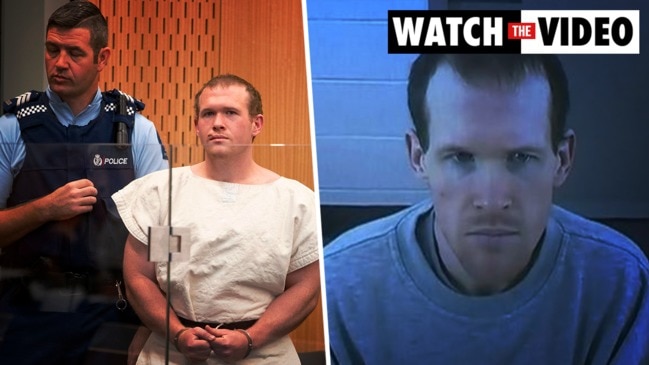
WARNING: Graphic content
Christchurch mosque gunman Brenton Tarrant faced more victims for the second day of his sentencing hearing in the High Court on Tuesday.
Tarrant, an Australian, has admitted 51 charges of murder, 40 of attempted murder and one of terrorism over the attacks at two Christchurch mosques on March 15, 2019.
Fifty-two of the more than 200 victim impact statements have now been read in court.
The wife of one of the victims of the Linwood mosque shooting revealed the horrific injuries her husband sustained in the attack during Tuesday afternoon’s hearing.
Alta Sacra, 35, an American national and Muslim convert – from “what I’ve read I’m the type of person you hate most”, she said to Tarrant – came to New Zealand with her Indonesian husband just two months earlier.
She said New Zealand was “far away from the gun violence and racism of America” and better to bring up a family than a developing country like Indonesia.
Ms Sacra recounted the phone call she received from her husband that day as he lay bleeding inside the mosque.
“The sounds I heard on the background of that call (were like) overlapping audio tracks of screaming, moaning, praying,” she said.
“(It was) indecipherable, horrific. I screamed at my husband to say something, even just one word. He said, ‘Chaos. Chaos. I’m hit. I’m down.’ And then the line went dead.”
Her husband spent two weeks in hospital and had five surgeries. “One of his testicles was blown off along with the tip of his penis,” she said.
“(The bullets) also fractured his back and ribs. He cannot sustain an erection without pain from scar tissue and can only sit to urinate. It has negatively impacted our sex life and thereby our relationship.”
Ms Sacra also suffered serious psychological trauma and requires counselling and medication.
After using up her 30 government-supported sessions she will have to pay up to $10,000 a year for regular psychotherapy treatment known as EMDR, or Eye Movement Desensitisation and Reprocessing, used in the treatment of post-traumatic stress disorder.
“I am constantly triggered,” she said. “When I hear a child crying in a shop I fear something has happened, perhaps a gun or knife (attack). When I see a lone white man, I’m sure he has a weapon.”
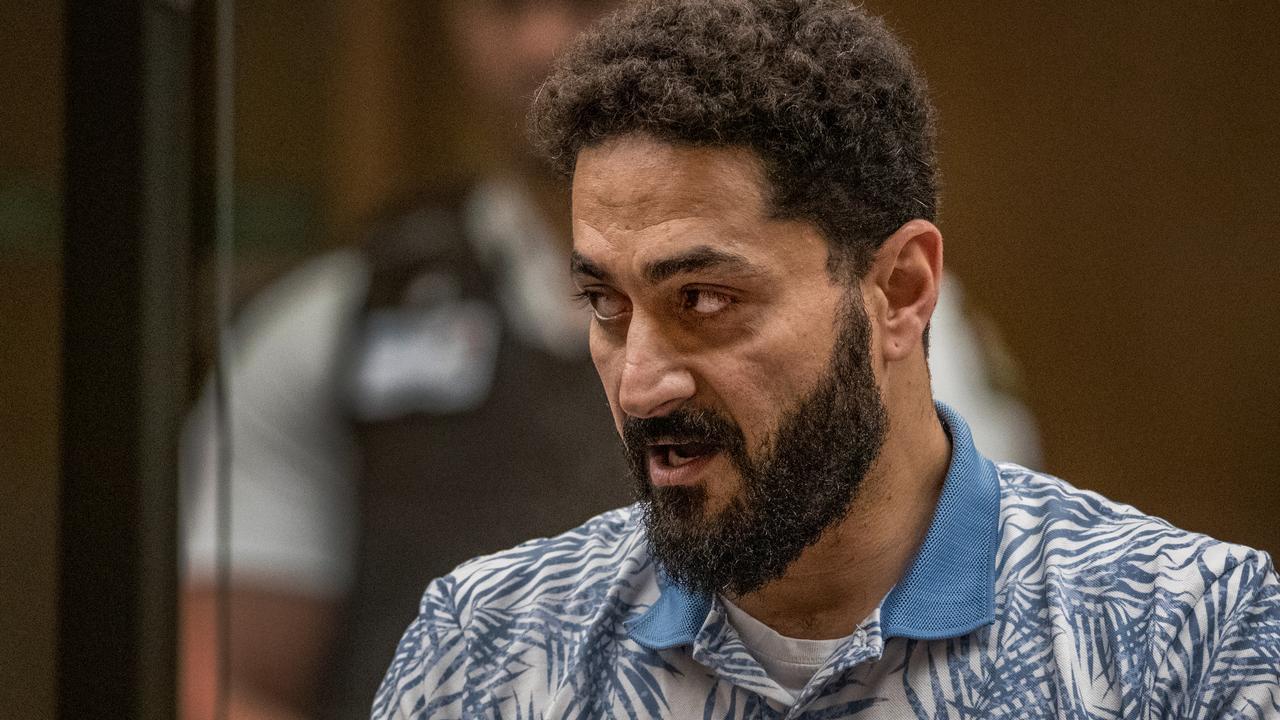
Earlier in the afternoon, the hearing went off script in fiery scenes, with one victim deciding against reading his statement and instead delivering a scathing message to Tarrant.
Mirwais Waziri apologised to Justice Cameron Mander but said he had opted not to bother with his victim impact statement after watching Tarrant’s reactions during the reading of the summary of facts on Monday.
Mr Waziri said it was clear Tarrant showed no remorse or regret, so instead, the Afghan immigrant said he wanted to “show him thank you very much”.
“(When I first came from Afghanistan) people were calling me terrorist, but you took that name from me,” he said, sparking applause from the courtroom.
“Today you are called terrorist, and you proved to the world I was not and us as Muslims are not terrorists.”
He said the attack had only strengthened his bond with New Zealand. “I will not leave this country, this is my country and my home,” he said. “I came as a refugee to this country. You are the loser and we are the winners.”
Zuhair Darwish, the brother of victim Kamel Darwish, 39, also delivered a fiery message before his pre-recorded statement was played.
“You will pay for what you did, in this life or in the other,” he said. “You act like a coward and you are a coward. You live like a rat and you deserve that. You‘re going to die alone. You’re like a virus everybody avoids being with.”
Mr Darwish said he knew that under New Zealand law “they removed the death penalty for humans, but unfortunately he‘s not a human, he doesn’t deserve to be treated or judged like a human”.
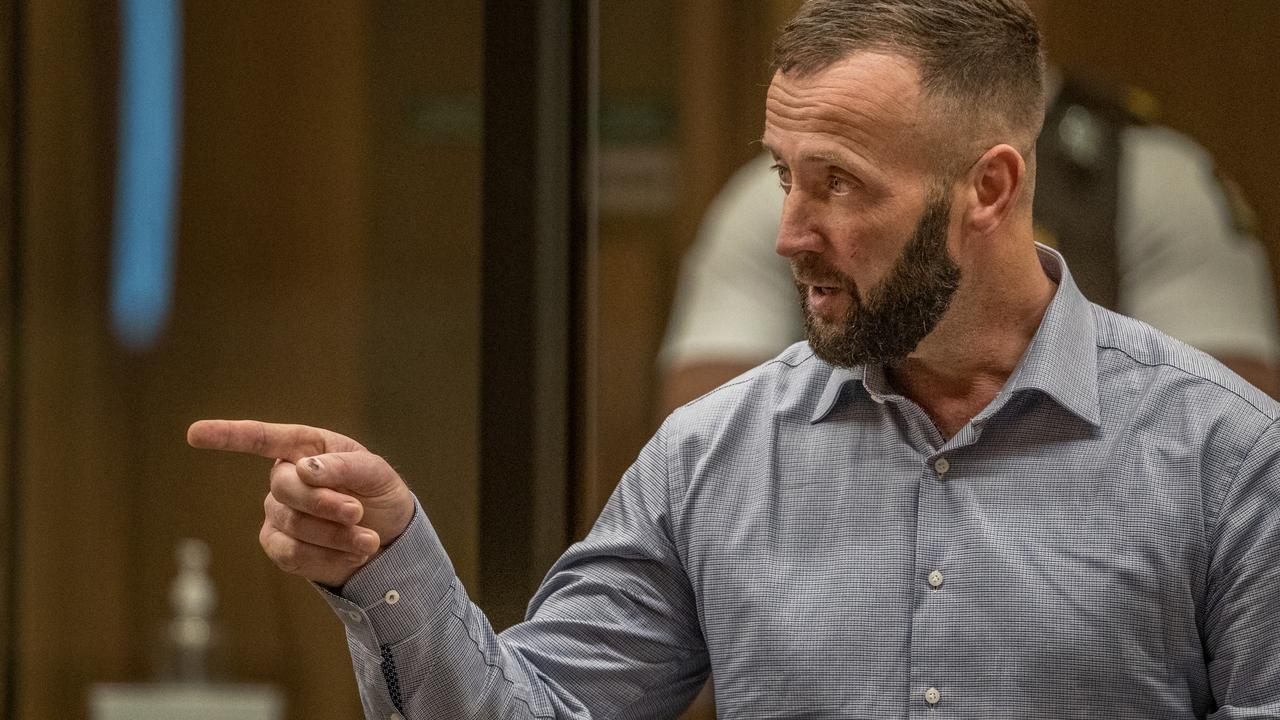
Farisha Razak, daughter of Fijian victim Ashraf Ali, 58, said she was glad there was no capital punishment “because that would be too easy”.
“If my dad was here he would say, ‘It’s OK, baby, everyone makes mistakes, forgive and forget,’” she said.
“Thanks to you he’s not here to tell me that. And I’m not my dad – I would never forgive you for what you’ve done.”
Attack survivor Wasseim Sati Ali Daragmih, 28, said he thankfully survived because Tarrant “doesn’t know how to use a gun”.
Mr Daragmih said he wanted to attend “just to enjoy and laugh” at Tarrant sitting in the dock “and me enjoying my freedom”.
“You have failed completely,” he said. “Your heart has led you to such a lonely, miserable place where you deserve to go.”
Mr Daragmih’s wife Asma, in a statement read on her behalf, said she hoped to meet Tarrant again in the afterlife. “I believe on the day of resurrection our Lord will bring us together and he will be held to account twice for what he did,” she said.
Nathan Smith, 46, a Muslim convert originally from Dorset in the UK, survived the Al Noor shooting and helped the injured.
“I held a three-year-old boy in my arms praying he was still alive,” he said. “You killed in my name. I am white, Muslim and proud. All you have done is cause great shame for Europeans around the world.”
Mr Smith taunted Tarrant, apparently getting an amused reaction from the killer. “When you get a free minute, which you will have plenty of – funny, eh? Very funny – maybe you should try to read the Koran,” he said. “It’s beautiful.”
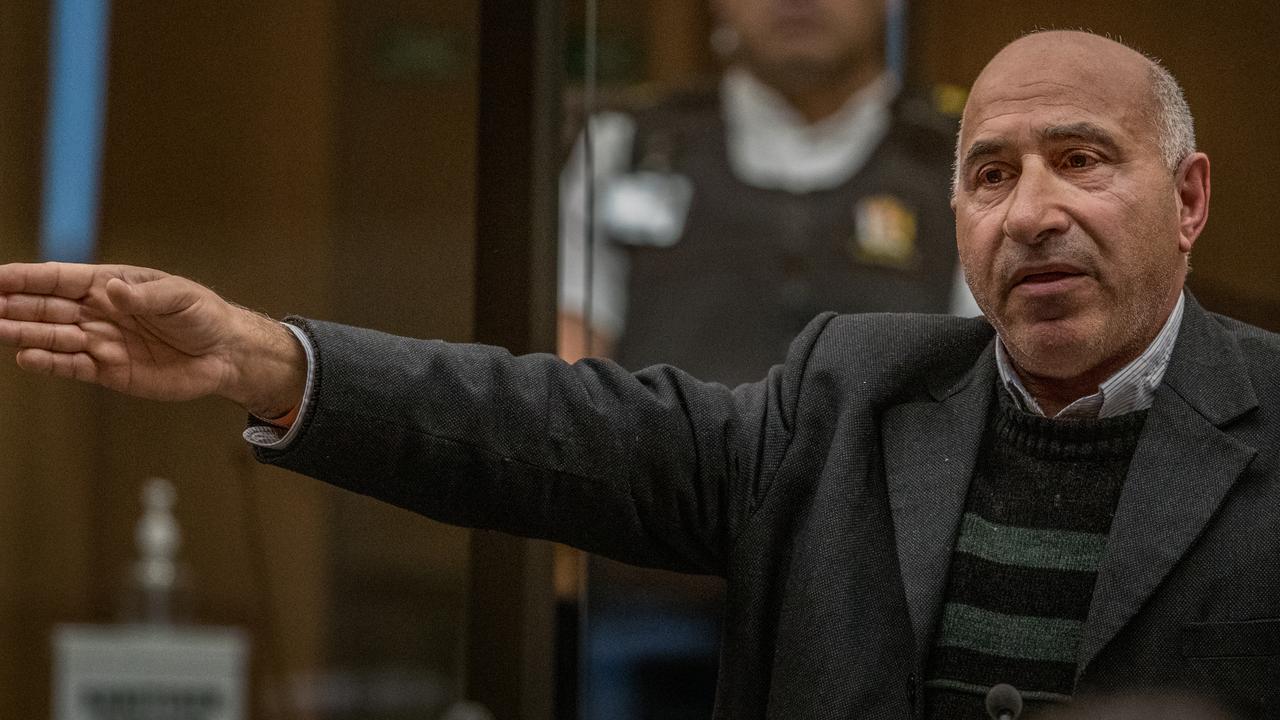
Local farmer Hazem Mohammed said he only survived by playing dead, even as Tarrant shot him in the shoulder while executing victims at point blank range after returning to the Al Noor mosque for a second time.
“He missed my head by one inch,” he said. “It took all my strength to continue to play dead.”
Mr Mohammed revealed that he had actually first met Tarrant not on March 15, 2019, two weeks earlier. “He came to visit the mosque and he was beside me,” he said. “I was looking at his eyes and he never looked at me.”
Khusbu Ramiz Vora, 29, widow of Ramiz Arifbhai Vora, 28, said their daughter had been born just five days before the shooting and was in a neonatal unit in an incubator due to breathing difficulties.
“Ramiz and my father-in-law went to the mosque for Friday prayers and never came home,” she said in a statement read on her behalf.
“My husband never got to hold our baby daughter. It was my husband’s dream for us to have a life in New Zealand. We lost a baby at 20 weeks and buried her in Christchurch. Ramiz is now buried with our baby.”
Linwood mosque imam Ibrahim Mohamed Abdelhalim described his guilt at not ending the prayers sooner after first hearing a “big sound” outside.
“I have thought about the delay in making this decision,” he said.
“I remember the horror of seeing the defendant standing in the entrance of the mosque and saw people falling down at the sound of what I now know to be gunfire.”
Mr Abdelhalim’s wife, Salwa El Shazley, 68, was close to victim Linda Armstrong, 65, when she was shot and was herself shot through the arm when she attempted to help her friend.
She screamed for her husband and son Mostafa, who was near the front row, to run for the emergency door.
“I remember seeing the horror of the defendant spraying his bullets at the men sitting at the rear of the prayer room,” Ms El Shazley said in a statement read on her behalf.
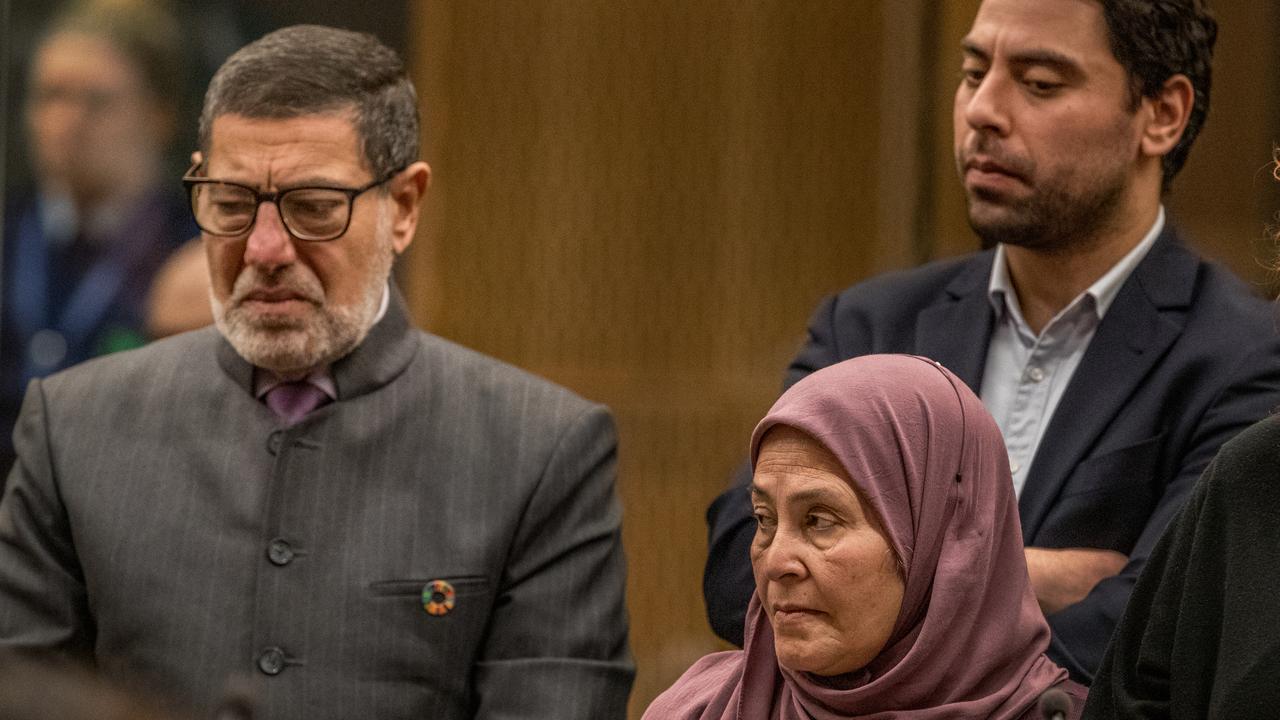
Motasim Hafiz Uddin, 48, was shot through the leg while at the Al Noor mosque. He and his family were supposed to fly home to Bangladesh that night to visit his sick mother.
“When the shooting started I tried to get through a doorway into another room, then I felt something like a shudder in my lower leg,” he said in a statement read on his behalf.
“I reached down and felt the blood and the hole and knew I had been shot. I fell down, I saw people falling down and being shot. I heard people calling for help and someone calling out for water. It seemed like a long time.”
Mr Uddin’s leg was shattered and he still can only put 30 per cent weight on it. He fears he won’t be able to return to his trade as a welder.
“I am blessed to be alive but worry about my future,” he said.
Noraini Abbas Milne, the mother of 14-year-old victim Sayyad Milne, told Tarrant that “whatever punishment you are going to receive in this world will never be enough to ease my pain”.
“You are a person who needs help and guidance,” she said.
“You choose to perform a despicable and cowardly act. My son now leaves this temporary world as a martyr, God willing.”
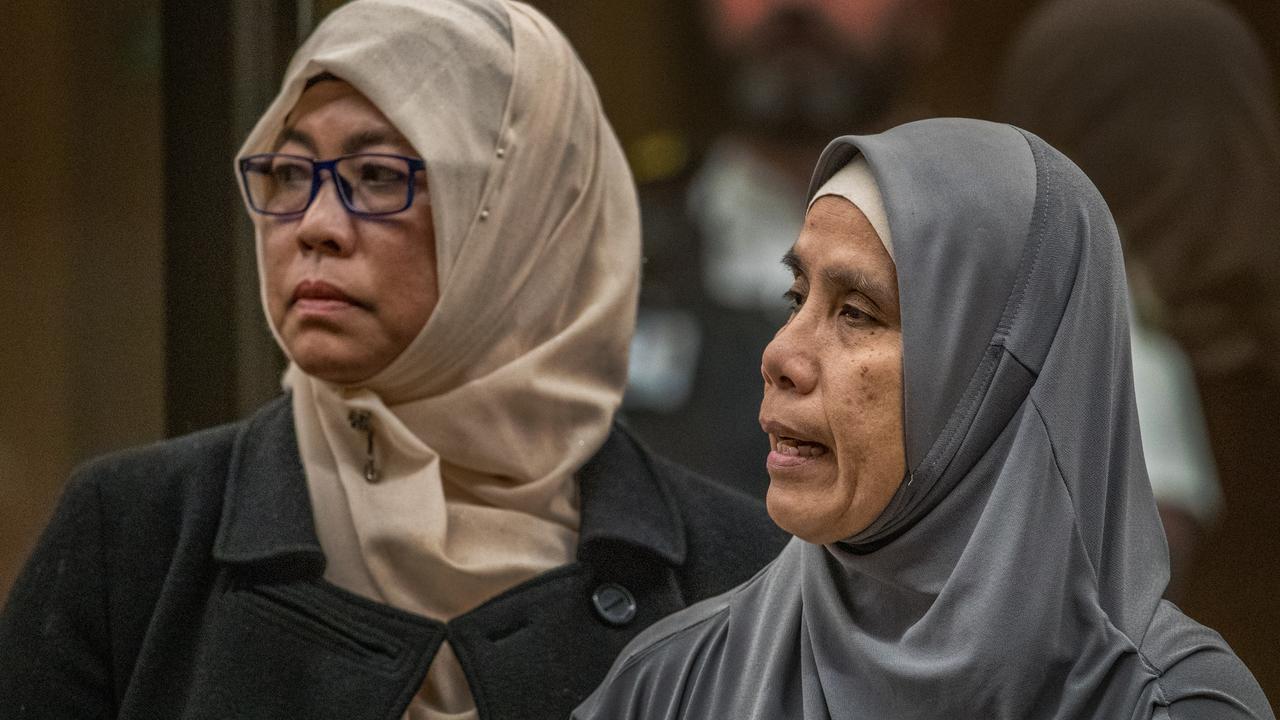
The parents and siblings of Al Noor victim Tariq Rashid Omar, 24, described their agony at waiting more than 32 hours for news.
His name was read out in a list of victims “in an extremely impersonal way in a room full of other families – it felt a bit like mass hysteria in a confined space”, his sister Qariah Omar said.
His father, Rashid Bin Omar, said he could not function properly for a long time, and could no longer enjoy his passion for photography that he shared with his second oldest son.
“I photographed all his sports games and achievements,” he said.
“I can’t get any pleasure from it, I can’t see any joy through the lens. I can’t even pick up the camera and begin to find pleasure there again. I miss this very much.”
Mr Omar said Tariq would live on through his memories and that one day they would be reunited as a family.
“I like to think that you will find peace within yourself, but I doubt peace will ever come to you,” he told Tarrant.
“I will never be able to forgive you.”
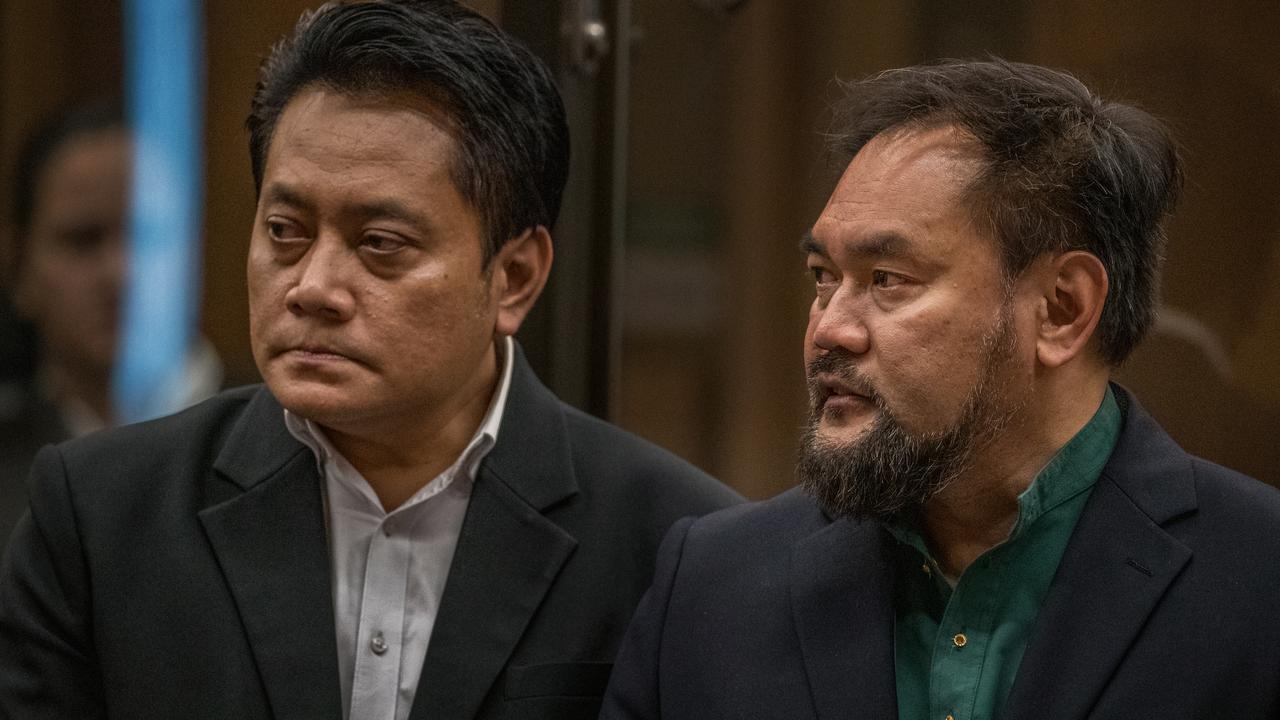
Rosemary Omar, Tariq’s mother, said her family had a “long history of overcoming adversity” being of Ashkenazi Jewish and Romani gypsy descent.
“Whatever gave the offender to take Tariq’s life away from me forever?” she said.
“This monster had no right to take my son away. I have a life sentence.”
Ms Omar ended by delivering a message to Tarrant in her ancestral language, which she then translated.
“My gypsy family and ancestors sincerely wish you contemplate on what you have done to our beautiful young man and son,” she said.
“Our ancestors will watch you for the rest of your days on earth as you do that.”
Al Noor mosque survivor Mohammad Shamim Siddiqui was shot in the arm and spent eight days in hospital.
He had only been inside five minutes when Tarrant “entered into the house of God with evil intentions to kill innocent people”.
“You have killed the dreams of my good friends and family,” he said.
“You pointed your gun at them and shot with your intent to carry out your gutless action.”
Mr Siddiqui said he tried not to talk about the shooting “because I don’t want to give you the satisfaction you want”.
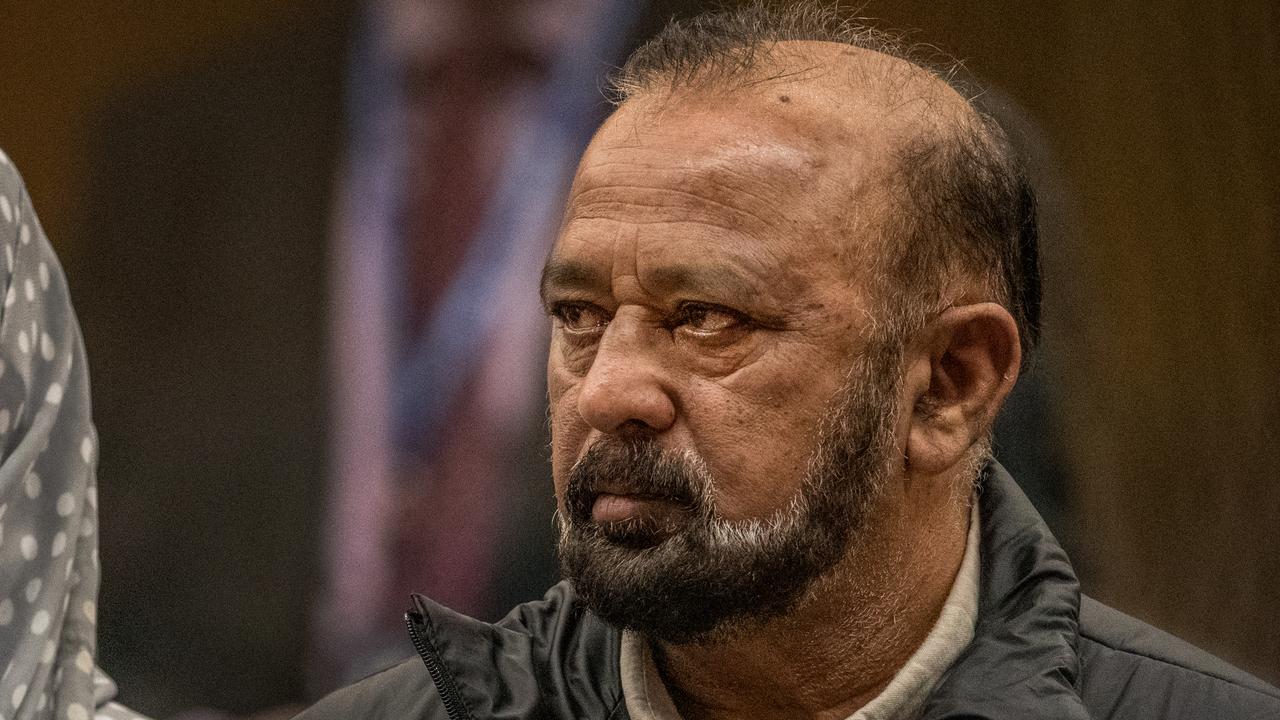
The taxi driver has not been able to return to work since the attack due to the trauma, and that his young children were also struggling.
He recounted how one day his daughter came home crying.
“(She) said while she was walking on Deans Avenue she was very scared, as cars were driving past her and she didn’t know if someone would kill her,” he said.
Mr Siddiqui said to Tarrant, “Your time will come, like everyone will have to face God for whatever they have done, good or bad.”
The twin brother and older sister of Al Noor victim Junaid Ismail, 36, described having to step in and care for his widow and young children.
Zahid Ismail said the family would ensure Junaid’s legacy would carry on through his sons and daughter, “who will become confident, proud Kiwis who will live in the same place their daddy lived”.
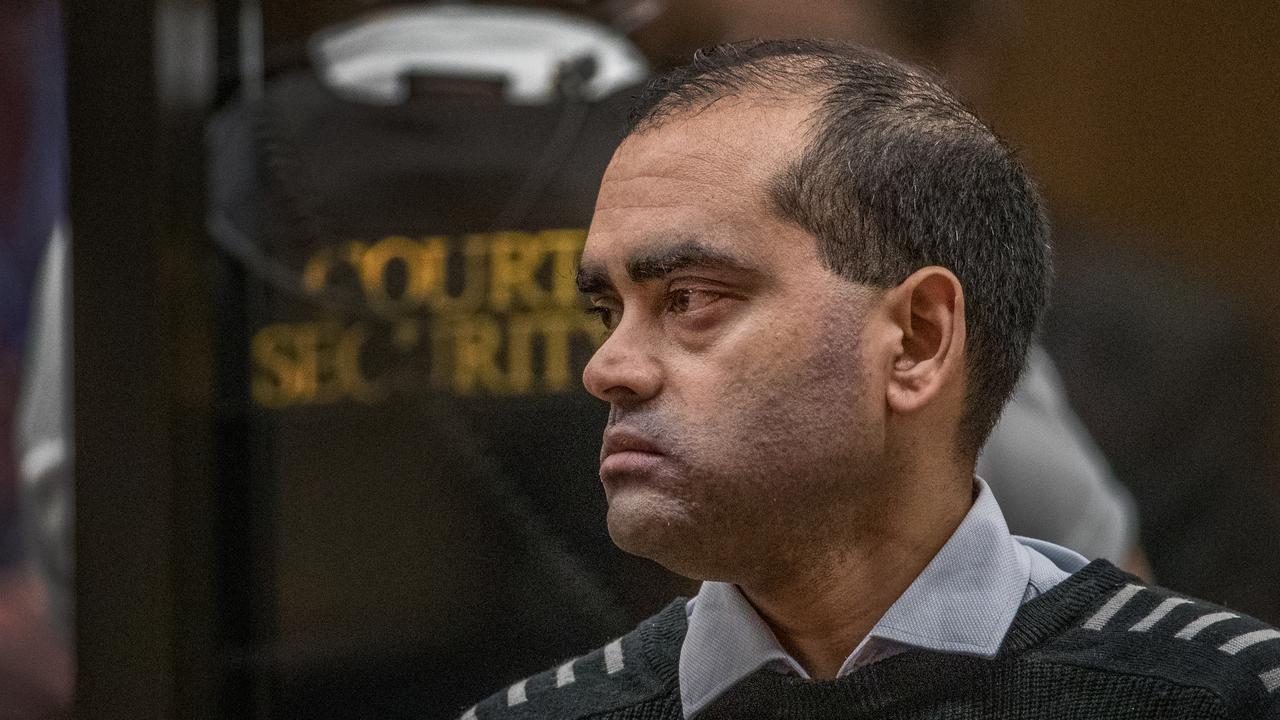
He remembered his brother’s “faithfulness, passion for cricket and pride in his large beard”.
Junaid’s sister Raesha Ismael, 40, said the events had inspired her to change career from health education to counselling.
“I will utilise this experience to support clients in the future and strengthen my career to help others,” she said.
“I am stronger internally as a result of what happened. After the events I don’t feel I have to hide my faith at work anymore.”
The family of father-and-son victims Naeem Rashid, 50, and Talha Naeem, 21, spoke about the financial devastation of losing the two main breadwinners in the household.
Naeem was hailed as a hero for attempting to tackle Tarrant during the Al Noor attack.
“Naeem was the bravest person on earth who fearlessly tried to counter the coward attacker whose only strength was weapons,” his widow Ambreen Naeem, 45, said in a statement read on her behalf.

Ms Naeem said her youngest son was six at the time and did not understand why his dad and big brother weren’t coming home.
“I told him they were in a better place because they were so brave – that they were in a better place and were with Allah,” she said.
She described Talha, who supported his family financially through his engineering job, as “the most amazing son and brother”.
Tarrant, she said, should not get “any joy from his life any more” but that “I will consider him as a human, for the sake of Allah”.
Abduallah Naeem, 20, said his “beloved father and brother were the best gift from God”.
“I cherished every moment we spent together,” he said.
“Sometimes it seems impossible to go on, but it is the thought of reuniting again in the highest rank of heaven that keeps me going and Inshallah we will.”
Kiran Munir, the widow of Haroon Mahmood, 40, said Tarrant should never be allowed the possibility or parole.
“I would like to see the punishment for this offender is such that it deters anybody from committing such a nightmarish actions ever again,” she said.
“For everyone’s benefit, releasing him in the community will not be safe. This is a perverted mind, life in prison means life for him.”
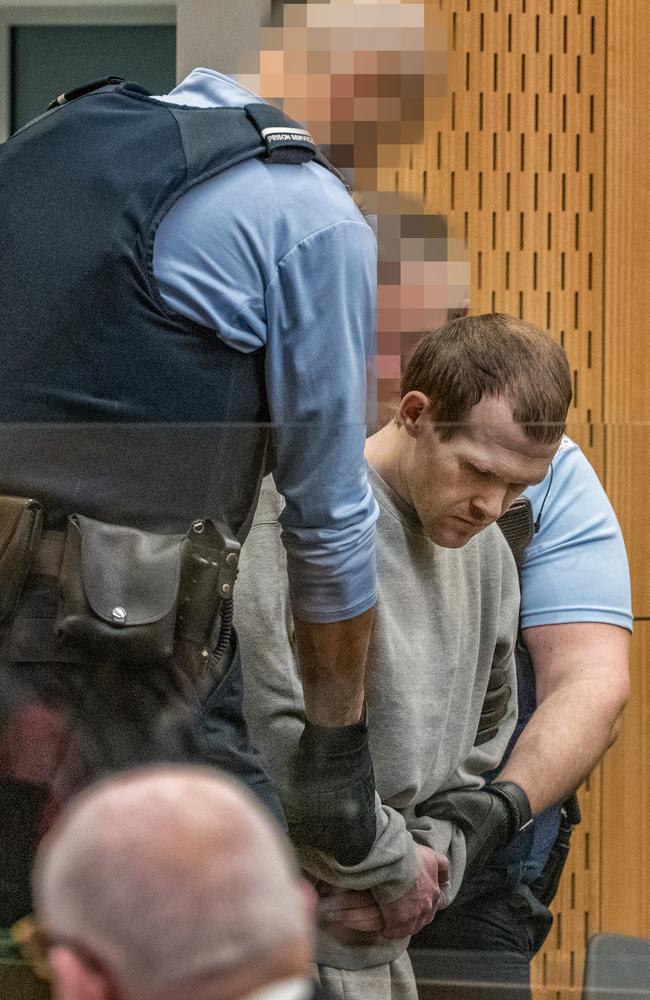
Sanjida Neha, 21, the widow of Mohammad Omar Faruk, 36, was in Bangladesh pregnant with their first child when the attack happened.
Ms Neha, who has since moved to New Zealand to raise their daughter, described growing strong and independent.
“When I arrived in New Zealand I did not know how to shop or cross the road,” she said in a statement read on her behalf.
“I have to be strong for my daughter. I was only just starting my life and now I have a child who has lost her father. When (she) grows up she will ask, ‘Where’s my father?’ How am I going to answer? I don’t know. It’s a question I’m always thinking of.”
The daughter of Linwood Islamic Centre victim Linda Armstrong said she still felt guilt for not being more understanding of her mother’s conversion to Islam.
“Much of this stems from choosing to listen to the media’s narrative about Islam, rather than my own mum,” Angela Armstrong said.
“Mum tried to tell me about the goodness at the heart of Islam. I’m ashamed to say this led me to not really connecting with my mum’s beliefs or her Muslim friends. Therefore I did not have contact with the mosque community when trying to find her on March 15 and days after.”
Ms Armstrong said every single bullet fired by Tarrant that day had a “ripple effect”.
“The direct result of just two of those bullets left me without my mum,” she said.
“I did not get the opportunity to say goodbye to my mum and to tell her I love her one last time and to hug her. You robbed me of my mother, of her love and strength. You will also never again feel the love and warmth of your mother’s hug, either. While I have pity for your mum, I have no emotion for you – you are nothing.”
The ripple effect of Tarrant’s bullets, Ms Armstrong said, was a broader understanding and acceptance of Islam that “flows back to the centre of your crime”.
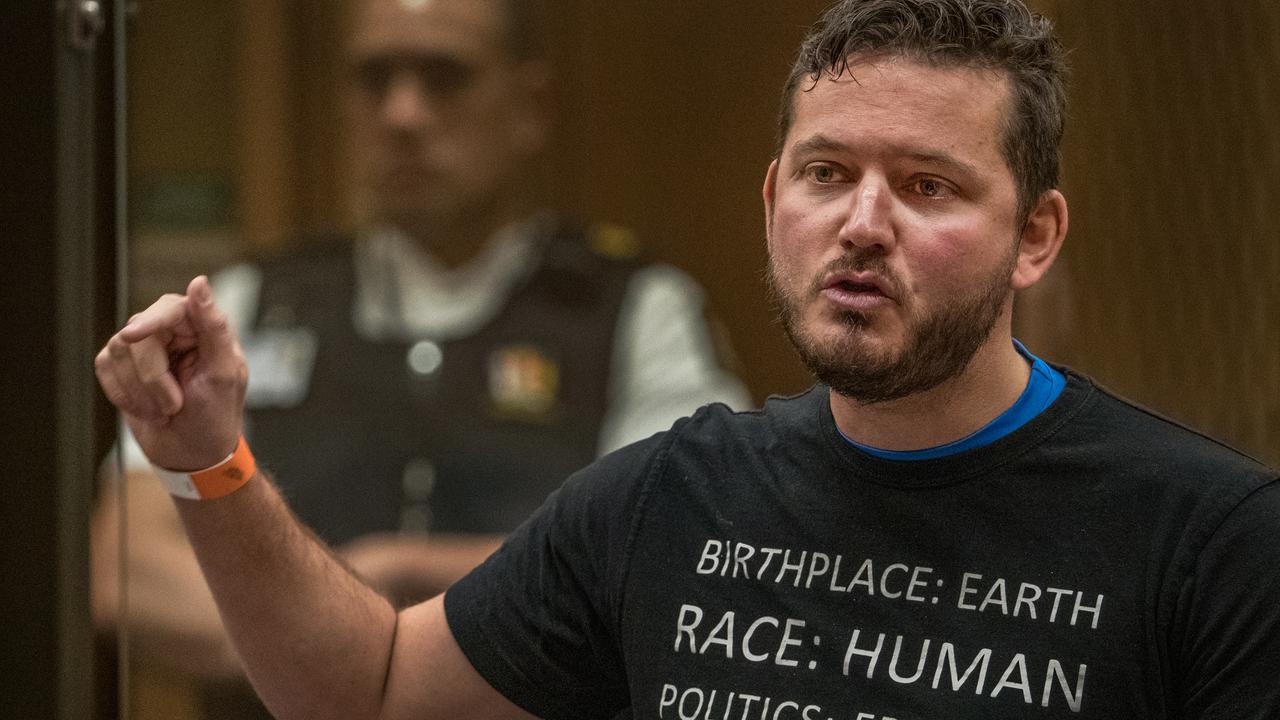
Linda Armstrong’s nephew Kyron Gosse said he was filled with “utter rage” when he learned Tarrant “was a guest to New Zealand”.
“He had no issue with Linda Armstrong – he didn’t even know her,” Mr Gosse said.
“Instead, filled with his own racist agenda, this coward hid behind his big, powerful guns and shot little old Linda from afar. She never even stood a chance.”
Mr Gosse said he had been sent the livestream of the attack in the days after and “innocently watched the video not knowing what I was viewing”.
“What I saw on that video will haunt me for the rest of my life,” he said.
He said he now fears open and crowded spaces and looks for escape routes “should this man or someone like him decide to open fire upon me”.
“Knowing a hate-filled low-life like this man could kill me for any reason is my new normal,” he said.
Luul Aden Elmi, 52, was in the Al Noor mosque when the shooting started and escaped to a nearby house with a group of other women.
“I heard another lady screaming outside on Deans Avenue, ‘Please don’t shoot,’” she said in a statement read on her behalf.
“On the driveway on the property I found a lady I knew, dead. I think it was her I heard earlier pleading for her life.”
Ms Elmi’s husband died in a car accident after just days after the attack.
He had been working in Balclutha more than 400km away and had driven back to Christchurch support her.
As he was making his way back to work he was involved in a single-vehicle accident near Oamaru and died.
“I believe the defendant’s actions are part of the reason my husband is now dead,” she said.
The sentencing continues.




